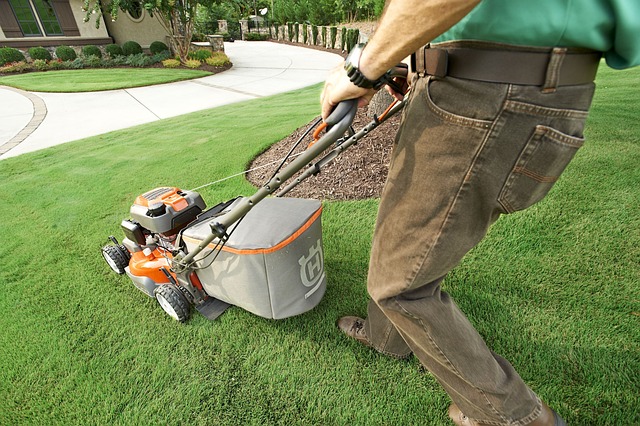Determining the right frequency in which you mow your lawn depends on the season. In states like New Jersey, the end of October to the start of March are the months you likely won’t have to mow your lawn. First and foremost mowing your lawn helps to keep your home tidy and clean in appearance.
Additionally, mowing your lawn helps to keep the grass healthy. Cutting your grass often also helps to promote the proper growth for your lawn allowing the grass to get the right amount of sunlight. Old cuttings also act as a fertilizer. Keeping the lawn from overgrowth helps to prevent common lawn pests that love tall grass; pests like ticks and fleas that could hurt your pets and family.
What is the best time to mow the lawn?
There is actually a science to when you should and shouldn’t mow the lawn, in general the golden rule is to never cut the lawn when it is wet, it’s always best to wait till the grass is fully dry. Cutting the lawn when it is wet leads to a few issues, the first is uneven cut grass. Wet grass also ends up clumping together getting stuck in the mower. The blades of the mower can also harshly pull on the roots destroying your grass.
Aim to cut the grass after the morning dew has dried. (between 8-10 am) The second best time of the day is when the sun has peaked around 3-4 pm. Cutting the grass later in the afternoon also ensures the grass is dry, the temperature is milder, and the grass has absorbed all the moisture.
When to cut the grass in the Spring
As the winter starts to end and spring starts to poke its head out, it’s important to look for consistent weather that doesn’t drop below 50 degrees during the day or night. Most grass seed is unable to grow below that 50 degree mark. At this time mowing once weekly is a good place to be until the summer heat and weather kick in.
Cutting the grass in the Summer
You should expect to cut your grass pretty frequently in the summer, there’s a few factors that affect the frequency of how often you should cut the grass. These factors include: heavy rain, heavy fertilization of the lawn and of course drought.
With heavy rain and fertilization expect the grass to grow quickly so every four days should be appropriate, In general aim to mow once a week. During extreme droughts which have been affecting New Jersey more often, your grass will stop growing, at this point if you don’t want to kick up dust and make a dusty field, we advise you to not cut your lawn until the grass returns to normal and starts to grow again.
Cutting the grass in Fall
As the temperature drops you’ll see your grass growing less and less, at this time of the year you’ll be mowing the lawn from your summer schedule to every week and half (about 9-11 days) and just like in the spring once the temperature falls consistently around the 50’s day and night grass seed will no longer grow. During this time it’s also best to focus on property clean up projects such as tree trimming/removal and yard cleanup work.
Common questions about mowing the lawn
Q: When is it too cold to mow the lawn?
You technically can cut your lawn in the winter depending on the temperature and if the grass is still growing. In general a soil temperature of anything below 50 degrees means that grass can not grow. The grass will stay dormant until the temperature rises.
Q: How short should I cut the grass?
Best height for grass is around 3 inches if you want to get real technical cut your grass around 4.5 inches. Cutting the grass too short can cause serious issues that stress the lawn, a short lawn also allows weeds to take hold in the lawn easier.
Q: How many calories does mowing the lawn burn?
Mowing the lawn with light moderate effort for 30 minutes can burn around 150-190 calories
Q: How often should your blades be sharpened?
Using a mower with sharp blades is much more important than you think, dull blades leave the grass cut roughly. Rough cut grass invites lawn diseases. A sharp cut grass allows for better conservation of water. If it takes you 30 minutes to cut the lawn expect to be able to cut the lawn 12.5 times or 25 hours of run time before having the blades sharpened again.
Q: Can I mow the lawn with a pacemaker
Like most medical conditions and devices, speaking with your doctor should be your first approach before exerting yourself. In general, mowing the lawn involves a moderate amount of exertion in the upper body. There is also a good amount of electromagnetic interference from the mower and vibrations could affect the pacemaker
Q: Can I mow the lawn while pregnant?
Yes, but you should speak with your OB/GYN first before mowing the lawn. In general as long as you are in good health, and take breaks mowing the lawn is safe till your 2nd trimester.
